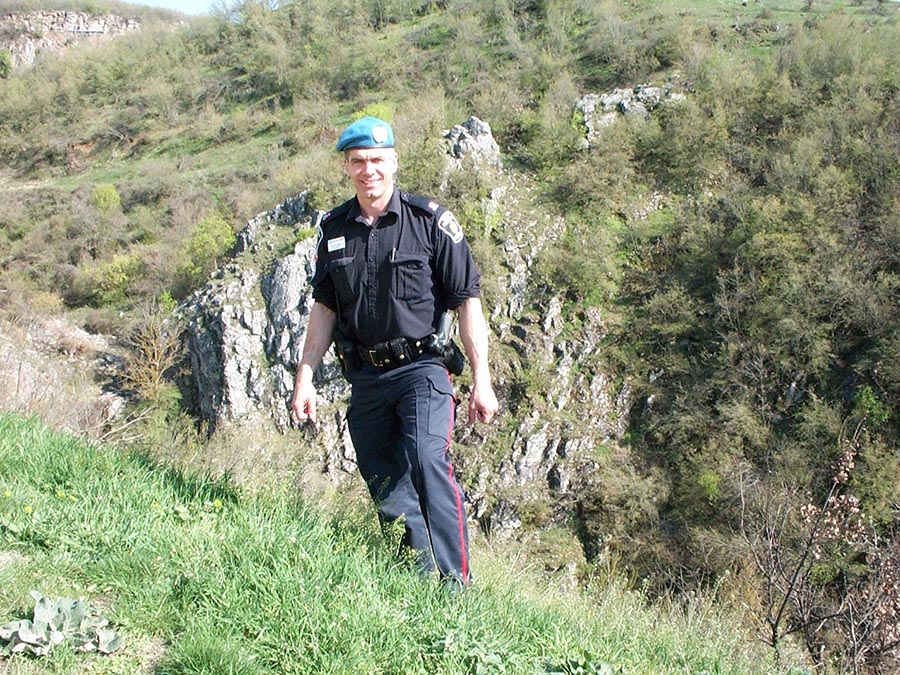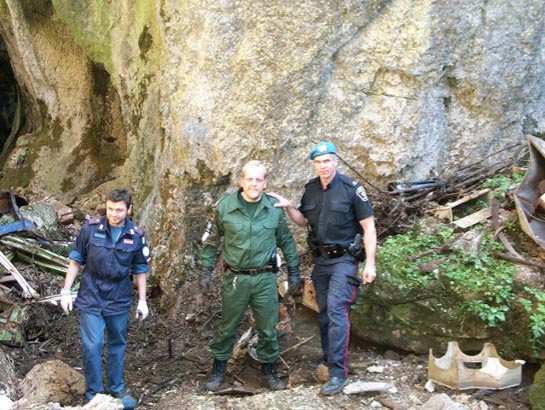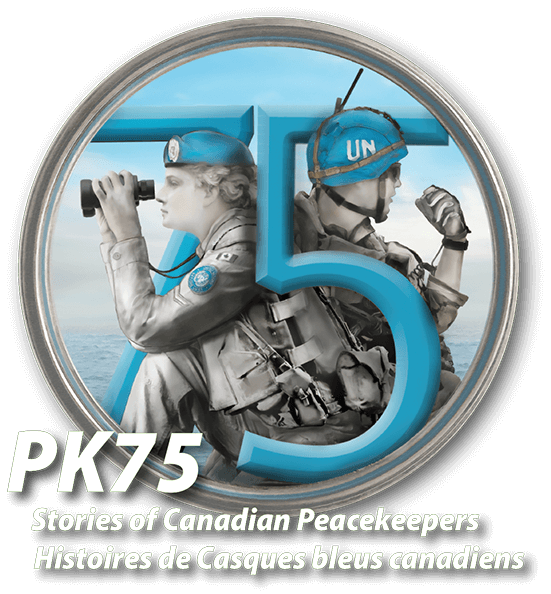

York Regional Police seconded me to the United Nations Mission in Kosovo (UNMIK) for a civilian policing role. My mission lasted from 11 November 2000, to 11 August 2001. RCMP International Policing managed this deployment, which was a separate, but complementary role to the NATO troops on the ground. My deployment was preceded by two weeks of training in Ottawa, where I qualified in RCMP use of force, mine awareness, and cultural competencies. We were a contingent of 21 Canadian police officers. My field working uniform was my home agency’s, with RCMP use of force gear, and UN blue beret. Core UN peacekeeping mandates applied, such as consent of parties, impartiality, and minimal force.
Our Canadian contingent arrived in Pristina, Kosovo where we had another week of preparation. An officer from Saskatoon PD and I were deployed to Klina, Kosovo, a rural area in Pec/Peja region. Officers lived in the community, renting, or boarding under their own personal arrangements. The other Canadian moved elsewhere after a few months, but I stayed at Klina. Here there was a predominately Albanian population, as Serbs had fled the area. We arrived at Klina on 21 November 2000. NATO had a KFOR military base outside town, then staffed manned at that time by a Portuguese army unit, mainly in an aid to the civil powers’ role, doing searches, patrols, road checkpoints, and our tactical resource (KFOR was the Kosovo Force, a NATO-led international peacekeeping force in Kosovo).
UNMIK and our local Kosovo police service recruits (KPS) processed weapons seized by KFOR and we processed offenders through the justice system. We were patrol officers 24/7 in teams of international and KPS. Over time, the KPS staffing increased, while international staffing was gradually reduced. By UNMIK mandate, many of the KPS police were former rebel combatants and, although their policing seemed effective, their mixed allegiances were evident. Police radios were good, but most calls for service filtered into the station by any means possible, and rural calls often attended after the fact.
Most of my mission was spent in investigations, following up, and making arrests. One big difference from Canadian common law, is that Kosovo was a continental law/civil code jurisdiction with Investigating Judges and Prosecutors. That meant we took a suspect to the Prosecutor promptly and they (theoretically) wanted shared agency of witness interviews and examination of crime scenes, completely different from the Canadian approach.
Calls were quite varied, and included traffic matters, missing persons, thefts, damages, illegal logging, disputes, shootings, illegal weapons, other munitions, and mental illness. One even involved a reneged payment of a bride purchase of 20,000 deutsche marks (DM) resulting in threats and charges. One call was a neighbour running over the other neighbour’s foot with a tractor.
There were minimal criminal records and fingerprint databases, but all that would come later. Some of the more problematic armed threats resulted from land and property occupations, and even an inter-family water-well dispute. Land registry records had been destroyed in the civil war, as well as much cultural and religious property. Even today, this is a problem, as a draft civil code was declined in the Kosovo Assembly in March, 2022. If it had passed, it would have better addressed family rights, property rights, inheritance (war widows), and other torts.
A colleague told me of one dispute he resolved via a ‘swearing’ before a village elder. I also had an intractable dispute call involving death threats over 80,000 DM that were owed on a dump truck, a debt incurred prior to Kosovo’s economic collapse. I also facilitated a ‘swearing’ resolution for this, relying on a KPS as lead officer. We located a high stature Kosovo Protection Corps member from Prekaj village who agreed to act as the mediator. A meeting was held at the Klina town office in the Albanian language with some time-extension resolution. The literature then was minimal, but since my UN time, more literature exists on this centuries old Kanun, or honour code, that existed underground throughout Ottoman and Yugoslavia rule, known for its hospitality, honour ‘Besa’ or swearing, and the problematic blood feuds.
My successes in retrospect were in taking the time to listen to the KPS officers at roadside memorials and at residences to follow the hospitality protocols, meet with the men of an extended family compound, drink Turkish coffee, and show mutual respect. We stated our business, and any wanted party would show up later at the police station. I was firm, without capitulating at many times. I really dialled down any command-and-control demeanor as my uniform presence at rural households made children cry. When I repatriated, I pushed hard to get into police forensics as this was one absent resource in my mission timeframe, coupled with Kosovars afraid to be witnesses.
Biography
Vincent Eagan was born in Guelph, ON in 1957 and grew up on a dairy farm near Tottenham, ON. He worked at construction jobs until joined York Regional Police in Newmarket in the fall 1978. The Ontario Police College Part A & B, two-part Basic Constable 16 weeks were completed in 1979. He married his wife Kelly in June 1979, and they are still together and are now grandparents. He served in Newmarket, ON at general police duties. The next police service joined on the 14th of April 1981, was the RCMP where he attended Depot Division Regina, SK for six months basic training, then on to Saskatchewan postings at Kelvington and Buffalo Narrows.
These rural and northern duties helped prepare him for the rigours of a UN mission due to more self-reliance with backup officers often distant, as well as dead police radio spots that we used to experience in the 1980’s. Vincent returned to York Regional Police in August 1988 and served at Markham, then Richmond Hill stations. This afforded training as a Scenes of Crime Officer (SOCO) which was a preferred duty of Constable Eagan and a skill he passed on to some Kosovo Police officers in his Klina, UNMIK policing mission as he took some fingerprint dusting supplies on mission.
On his return to Canada in August 2001 his assignment was still as patrol at Richmond Hill station. The opportunity for police Forensic Identification roles as an FIS officer began in 2003 after graduating from the Ontario Police College Forensic Identification Course. This duty was for a total of 10 years in two different time periods and provided a lot of ancillary FIS specialty short courses he attended. He also spent the last part of his career as a patrol Sgt until retiring in January 2018.
Vincent also has a BA Hons in Policing from Wilfrid Laurier University, an MA in Interdisciplinary Studies from Royal Roads University, Sooke BC, and a Bachelor of Forensic Identification from Laurentian University. He will be starting a graduate diploma in Canadian law part time at Osgoode, York University in fall 2023. Vince also has a Peace Operations Specialized Training Certificate in Police Studies from the Peace Operations Training Institute that was a post-mission endeavor to understand evolving best practices in UN peace operations.

Klina area of Kosovo, April 2001.

Italian and German police officers with Vince, working together at an investigation site.


